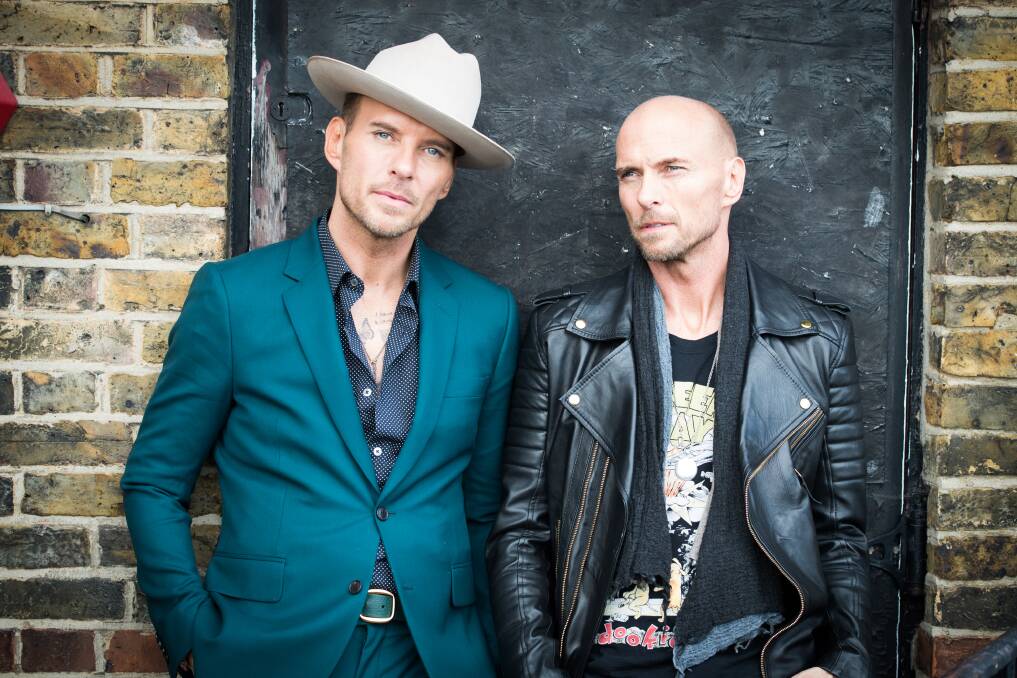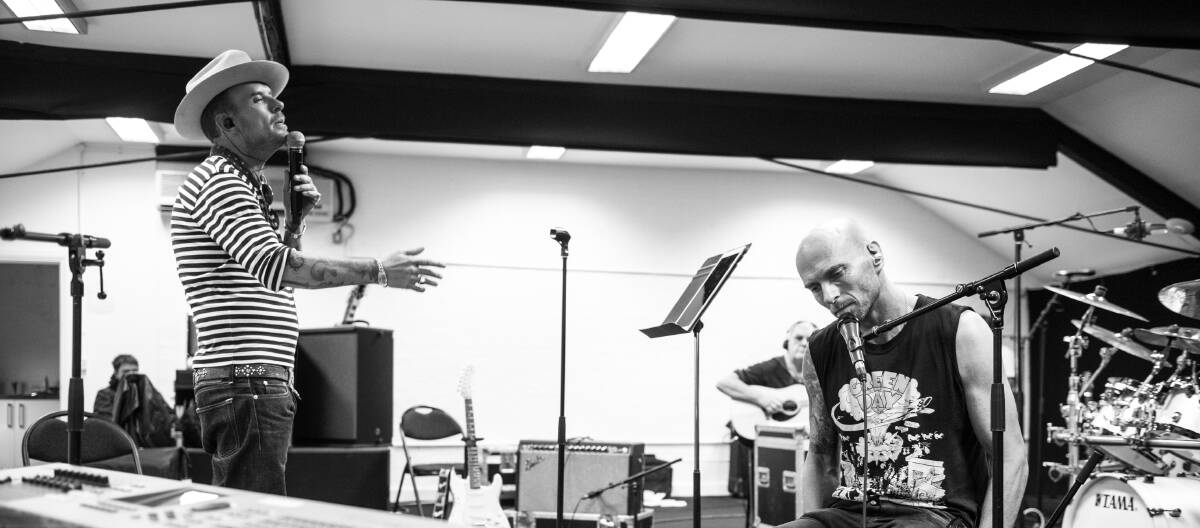
MATT and Luke Goss skyrocketed to pop idol fame in 1987 as the stars of British group Bros.
The band's 1988 debut album, Push, sold 10 million copies and produced five top 10 singles, including I Owe You Nothing, Drop The Boy and the trademark hit, When Will I Be Famous?
Bros attracted a fanatical female following (their supporters were coined the "Brosettes") who mobbed the then 19-year-old brothers everywhere they went, camping outside their home, and adopting the band's uniform of ripped blue jeans, leather jackets and white t-shirts.
At their peak, Bros became the youngest band to headline Wembley Stadium when they performed a one-off concert in 1989 in front of 77,000 fans.
Behind the scenes, the identical twin brothers struggled with their personal relationship and experienced the trauma of losing their sister Carolyn when she was killed in a car accident at the height of their fame.

The situation became so strained that Luke, the band's drummer, walked out on Bros in 1992, leaving his frontman brother shattered.
The group's whirlwind success and subsequent demise is documented in the 2018 film, Bros: After The Screaming Stops, which follows the brothers as they prepare to reunite for the first time in 28 years to perform two shows at London's o2 Arena.
The raw and emotional content of the film struck a chord with critics and fans, taking out best documentary at the National Film Awards UK (the film is screening on SBS on Demand until February 16).
"It seems to be one of those movies that resonates with people way beyond music," Matt Goss says from his home in the US. "It also shows the dysfunction of family and the journey that it takes, and the determination and fortitude that it takes, to try to get to a better place.
"I'm proud that it's not just a movie that's trying to say 'Aren't we great?'. It's warts and all and pretty raw, and it's actually quite difficult for me to watch."
The opening scene of the doco takes place in a backstage dressing room in 2017. It is just a few days before Bros are set to perform two reunion shows at London's o2 Arena. Tensions between the long-estranged brothers are high.
A heated argument about their strained relationship breaks out that ends with Matt storming out on his brother after it escalates into an expletive-ridden shouting match.
Dysfunction is at the centre of the film as the pair work toward finding themselves again as brothers.
Despite the moments of discord, Matt says the film provided an opportunity for the brothers to finally learn to understand each other.
"We did not speak each other's language and we were horribly unaware of each other's suffering," Goss explains. "I think, obviously, this film changed that. We were forced to acknowledge each other's pain, we were forced to acknowledge each other's frustrations.
"I think one of the words that we gained out of it was trust. My brother learned to trust me as the frontman of the band and that gave me a lot of peace.
"It's a beautiful thing when your brother respects you enough to take hold of an audience.
"Then to see him smash it again and really hold down the band and be a phenomenal drummer, I was just so proud of him and I think that's the thing, when you get that sense of pride for each other and that trust for each other, that transcends music."
Goss says the film offered a chance to tell their story and clear up any mistruths.
In between the Spinal Tap-esque moments when the brothers argue over the direction of the music during rehearsals, they open up about the pain of losing their mother Carol to cancer in 2014 and the tragic death of their sister who was killed by a drunk driver in 1988.
The brothers recount how they were told about her death shortly before they were scheduled to appear on a TV talk show. Footage from the show is included in the doco, with Luke and Matt looking visibly shell-shocked as they go through the motions after being thrust in front of TV cameras despite learning about the tragedy only a few hours earlier.
"I think there was so much about our journey that had not been spoken about," Matt says. "People assume that everything is hunky dory when you're in that fame bubble but there is just so much more depth to it.
"Our sister was killed by a driver and that left a big mark on us on so many levels, and then Mum died.
"We should have reformed when Mum was alive. I think it's certainly a regret for me that I didn't get to show Mum that we had made amends."
In the years since Bros split, Luke shifted into film work and became an actor, starring in movies including Blade II and Hellboy II.
Matt forged on as a solo artist and revived his career in Las Vegas in 2010 with a residency performing in his own show at Caesars Palace that ran for more than a decade until COVID-19 hit.
He is releasing a new contemporary pop solo album in March titled The Beautiful Unknown.
"During COVID, I realised that if I want to see the world, if I want to come back to Australia and go to Tokyo and beyond, I knew that I had to write a new record that was contemporary that went back to my love of pop music, so I did.
"I knew it wasn't about necessarily having hit records, it was about trying to get back to the territories that I love so much."
As for Bros, the pair are in talks about recording new music and performing together again.
"After we did those shows at the 02, we vowed that we will never break up again," Matt says. "It wasn't a reunion, it was a reforming. We are open for business and we are totally looking forward to going and doing what we do best.
"Bros is larger than life, you know what I mean? I am doing my record and Luke's doing his thing but we would absolutely love to get back on stage again."







